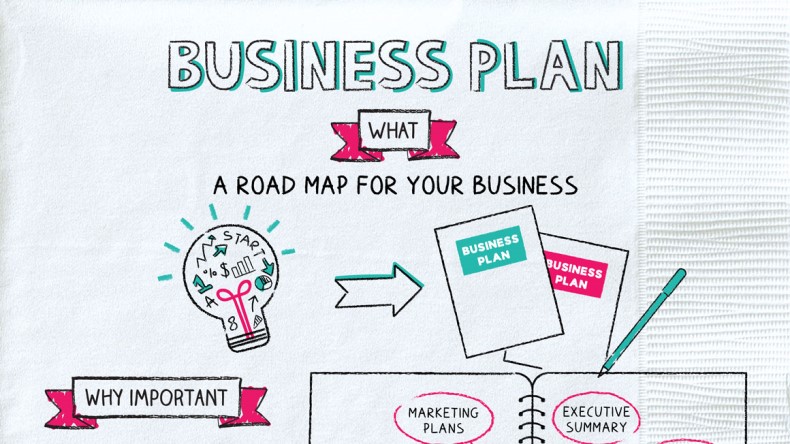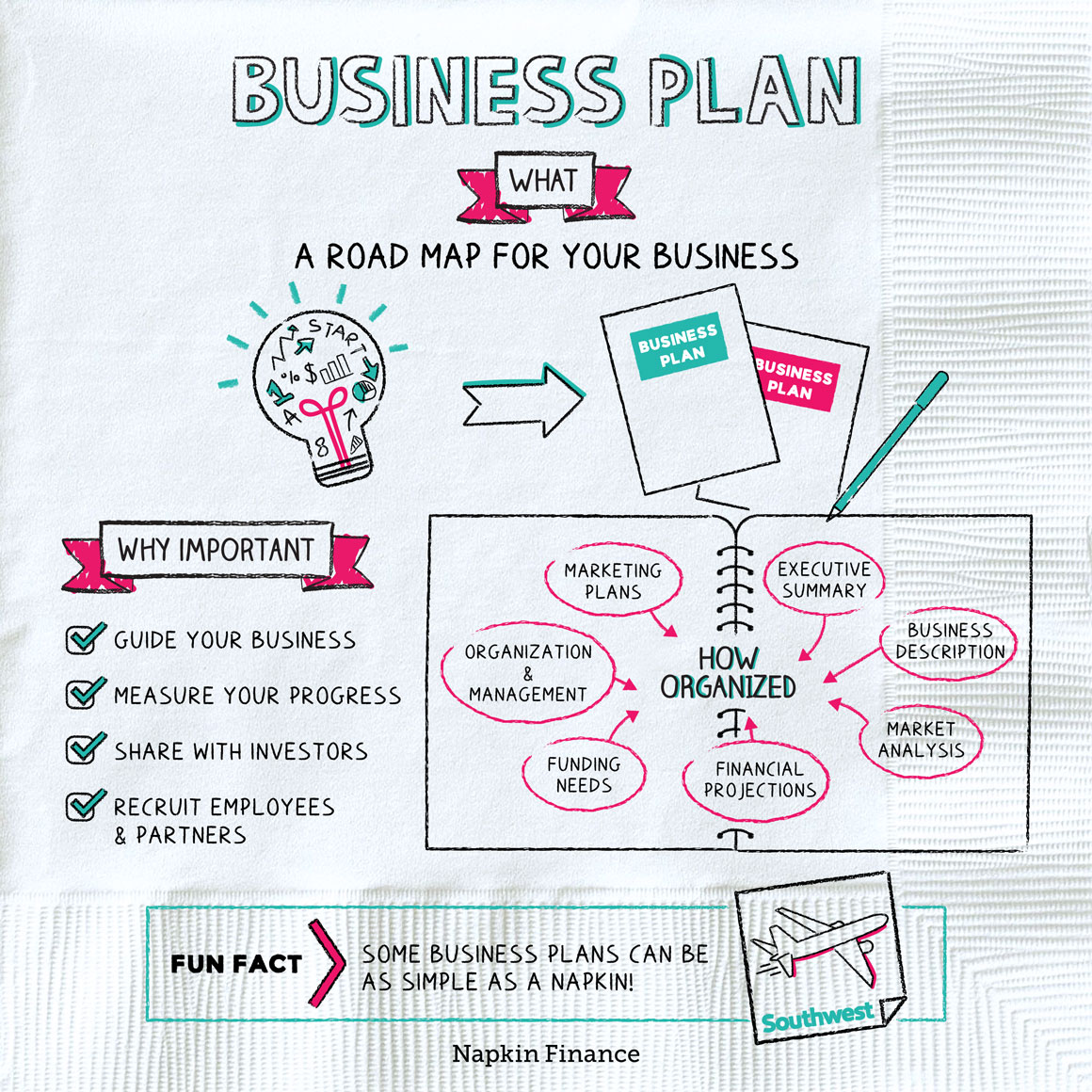Business Plan
Best-Laid Plans


A business plan is a document that outlines your vision for your business. It describes your big-picture dream for where your company is going but also includes some of the nuts-and-bolts steps you’ll need to take to make your dream a reality.
You’ll use your business plan to:
- Stay on track—Your plan can help you set out the exact steps you’ll need to take to develop your business so that you always know what comes next.
- Measure your progress—Put some milestones in your business plan that you can check off as your company grows.
- Court investors—Prospective backers will want to know that you have a realistic plan and may have questions about nitty-gritty details, such as any financial projections.
- Recruit employees and partners—Having a realistic vision can help persuade top-notch employees, customers, and partners to work with you.
“We have a strategic plan. It’s called ‘doing things.’ “
—Herb Kelleher
Your business plan can be as simple or as detailed as you choose to make it. Some business plans are drawn up on the back of a napkin. Others can be as long as a book.
You can consider including the following in your business plan:
- Executive summary—A quick overview of your whole plan.
- Business description—The basics of your business model and what your company has accomplished so far.
- Market analysis—Who are your customers and who are your competitors?
- Organization and management—What’s your company’s legal structure? Who are the superstars on your team?
- Marketing plans—Your plan for getting the word out about your business and finding customers.
- Funding needs—How much money do you need to get off the ground?
- Financial projections—Your best estimate of your company’s sales and profits for its first few years.
“It takes as much energy to wish as it does to plan.“
—Eleanor Roosevelt
Here are some important things to keep in mind as you draft your business plan:
- Trends: Consider who will use your product or service and how fast that market is growing (or whether it’s there at all). Online research or focus groups might help. What you learn can help you refine your plan.
- Audience: Write your business plan for its intended audience. For example, if you’re planning to find investors or ask a bank for a loan, research what information they’ll want to see and be sure to include it.
- Help: You don’t have to go it alone. Ask a friend to look at what you’ve drafted, find a professional, or talk to another business owner who can give feedback and suggestions. Family is a possibility but take what they say with a grain of salt. Your grandma’s going to support you even if you’re trying to sell milk to a cow.
A business plan isn’t always a set-it-and-forget-it document. You might want to update your business plan if:
- You’re seeking new or additional funding
- You’re adding a new product or service
- The market for your product is changing
- Your business has grown significantly or undergone some type of change
- You have new goals (or a new set of owners who have their own big plans)
Even if none of those situations apply, you should still periodically review your plan to decide whether it needs an update. If you wrote it five, ten, or 20 years ago, there’s a chance it doesn’t reflect reality anymore. Plus, revisiting your plan can be a good chance to check in on where you are and come up with a new set of goals.
A business plan is a road map for your business. It can be simple or include detailed information about your products, services, finances, and market. Potential investors, lenders, and partners usually want to see a business plan before deciding to work with you.
- Southwest Airlines, Shark Week, trickle-down economics, and no fewer than four Pixar movies were all supposedly conceived of on napkins.
- In real-world Silicon Valley, founders are known to exaggerate facts and figures about their business when they pitch their plans to prospective investors. As one founder said, “Being honest in Silicon Valley is like being the one member of an Olympic team that isn’t on steroids.”
- Your business plan is your company’s road map.
- You need a business plan for yourself and for potential investors, employees, and business partners.
- Some business plans will be extremely detailed, while others may be more of a simple vision statement.
- Update your business plan as your company grows and changes.




